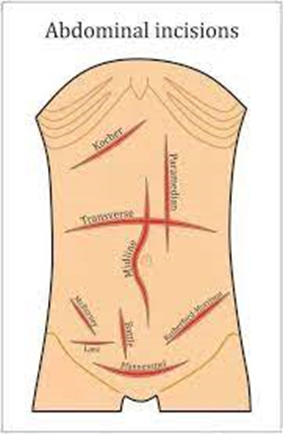A nurse is replacing a dressing for a client who has an abdominal incision with a closed wound drain. Which of the following actions should the nurse take?
Push the skin down while gently removing the tape.
Dry the incision with sterile gauze pads.
Lift the soiled dressing so that the underside faces the client.
Clean around the drain site using horizontal strokes.
The Correct Answer is C
Choice A Reason:
Pushing the skin down while gently removing the tape is incorrect. Pushing the skin while removing tape could cause unnecessary discomfort or trauma to the skin and the incision area. Gentle removal of tape without pulling the skin is recommended to avoid skin injury.
Choice B Reason:
Drying the incision with sterile gauze pads is incorrect. Generally, it's advisable not to dry the incision site with sterile gauze pads as this might cause trauma or disruption to the healing tissues. Patting the incision site dry or allowing it to air dry gently after cleansing is preferable.
Choice C Reason:
Lifting the soiled dressing so that the underside faces the client is correct. Lifting the soiled dressing in a manner that the underside faces the client helps prevent potential contamination of the wound by minimizing contact between the external surface of the dressing and the incision site. This technique reduces the risk of introducing pathogens into the wound during the dressing change.
Choice D Reason:
Cleaning around the drain site using horizontal strokes is incorrect. When cleaning around the drain site, it's typically recommended to use gentle and careful motions without specific emphasis on strokes, as this might cause friction or trauma to the area around the drain. Instead, using gentle circular motions or dabbing around the site is often advised for wound care.

Nursing Test Bank
Naxlex Comprehensive Predictor Exams
Related Questions
Correct Answer is A
Explanation
Choice A Reason:Using direct quotes from the client in the incident report is appropriate because it provides an accurate and objective account of the client's perspective. This is an important part of documenting the incident.
Choice B Reason:Incident reports are meant to be internal documents used for quality improvement and risk management. Noting in the medical record that an incident report was completed is not appropriate, as it could imply liability or affect the legal status of the report.
Choice C Reason:The nurse should not draw conclusions about the cause of the incident in the incident report. The report should contain only objective facts, not assumptions or interpretations.
Choice D Reason:
The nurse should not draw conclusions about the cause of the incident in the incident report. The report should contain only objective facts, not assumptions or interpretations.
Correct Answer is D
Explanation
Choice A Reason:
Keeping the knees straight is not appropriate. It's advisable to bend the knees while lifting to engage the leg muscles and reduce strain on the back.
Choice B Reason:
Standing with the feet close together is not appropriate. Having a wider stance provides better stability and balance while lifting heavy objects, which is preferable to standing with the feet close together.
Choice C Reason:
Holding objects away from the torso is not appropriate. Keeping objects close to the body while lifting helps maintain control and reduces strain on the back. Holding objects away from the torso can increase the load on the back muscles and lead to injury.
Choice D Reason:
Aligning the back with the neck and feet is appropriate. This instruction emphasizes maintaining proper alignment of the body during lifting to reduce strain on the back muscles and minimize the risk of injury.
Whether you are a student looking to ace your exams or a practicing nurse seeking to enhance your expertise , our nursing education contents will empower you with the confidence and competence to make a difference in the lives of patients and become a respected leader in the healthcare field.
Visit Naxlex, invest in your future and unlock endless possibilities with our unparalleled nursing education contents today
Report Wrong Answer on the Current Question
Do you disagree with the answer? If yes, what is your expected answer? Explain.
Kindly be descriptive with the issue you are facing.
